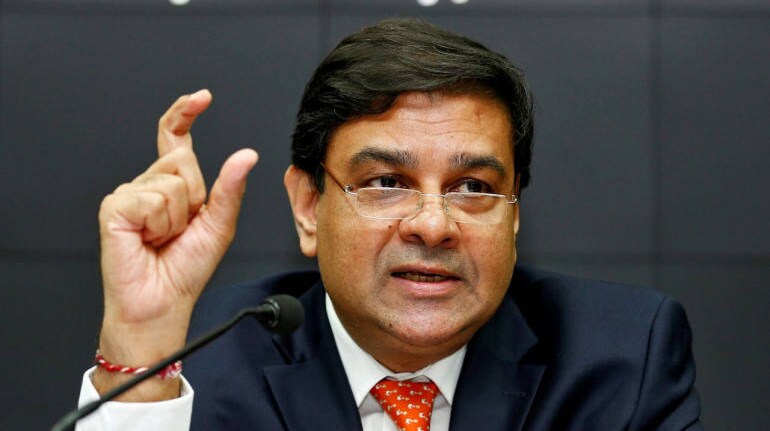



Latha VenkateshCNBC TV18
The RBI shocked, nay pleasantly surprised, the bond and stock markets on Thursday. It drastically cut its inflation forecast for the first half of the current year by half a percentage point to 4.7-5.1 percent from 5.1-5.6 percent in February. It further cut the inflation forecast for the second half of the year (Oct-March) to 4.4 percent from its earlier forecast of 4.5-4.6 percent.
Given that the RBI’s, or rather the MPC’s, mandate is to keep inflation close to 4 percent, this forecast effectively means there is no rate hike in the offing for at least one year. Indeed, given that the RBI’s Monetary Policy Report (a document that it puts out twice a year, given its inflation-targeting mandate) forecasts FY20 inflation at 4.5 percent, chances are that there will no rate hikes for the next two years.
The RBI did not say why it cut the inflation forecast so drastically. Perhaps it was because inflation in the quarter that just ended, was mostly around 4.5 percent, a good half a percentage point lower than the 5.1 percent that RBI forecast. Much of this is because of the unexpected crash in food prices, and by the looks of it, RBI has merely factored it into the April-September forecasts.
It is a little more difficult to explain the cut in the inflation forecasts for the second half. Although it is a minor cut, it is bewildering because the government has promised to increase minimum support prices (MSP) for crops to 1.5 times their production cost. Economists believe such an MSP can well push inflation up by half a percentage point. Of course, these are guesstimates, but it is fair to assume that the RBI also fears some kind of spike in inflation due to MSP; it mentioned this as a risk to its forecast.
What is more, the government has also indicated that it is preparing to implement the MSP diligently by paying farmers the difference between the market price and the MSP, with states bearing part of the burden. Ashok Gulati, a former chairman of the agricultural prices commission, estimates that if market prices are 10 percent below MSP, the government’s scheme will cost the fisc Rs 43,700 crore, and if they are 20 percent below MSP, the cost to the exchequer could be Rs 87,400 crore.
This means that the other risk the RBI points to in its estimates -- higher-than-expected fiscal deficit from states and the Centre -- is a threat that will most likely be realized, especially in an election year.
Also, the RBI has assumed that crude prices will be around USD 68, but there is a good chance that crude prices will be even higher. Interestingly, the RBI dovetailed its inflation forecast with only upside risks. It did not mention a single downside risk. All this clearly arouses skepticism about this 4.4 percent forecast. But to be fair, the RBI governor said at the outset that he will be data dependent.
So is the RBI merely taking a gamble? The strong speech of the deputy governor on January 14 had scared away banks from the bond market. The yield curve steepened to historic highs as a result. The difference between the overnight repo rate and the 10-year benchmark yield climbed to 160-175 basis points for the better part of February and March, versus a usual spread of around 70 basis points.
This jump in yields threatened to jeopardise growth and more importantly, the government’s borrowing programme. In the past two weeks, the government and the RBI have taken two significant steps to bring down bond yields. First the government cut its first-half borrowing programme by 22 percent and hugely reduced the amount of long-term bonds that it plans to sell. Then the RBI moved in and allowed banks to provide for their mark-to-market bond losses in FY18 over four quarters, instead of doing it in the quarter when the loss was incurred. This benign inflation outlook could be seen as an effort to push through the government’s first-half borrowing programme.
After all, the RBI, as the governor said on Thursday, is always data dependent. If the impact of MSP on food prices is high, and the fiscal deficits are larger than budgeted, the RBI can always raise its inflation forecast at its August or October policy meetings. There is, hence, a bit of uncertainty for markets in the second half of this year. Inflation could be higher than forecast exactly at the time when the government will be borrowing more than it usually does in that part of the year. Of course, the RBI’s gamble may pay off and food inflation may indeed remain benign, perhaps due to globally soft food prices, which experts say often rubs off on Indian food prices.
That said, what doesn’t sit very comfortably is the fact that there was wide variation in RBI’s forecasts from its last two policy meetings. What changed so much in two months that RBI cut its inflation forecasts to this extent? Again, at its February policy meeting, the central bank spoke of the need to “nurture” the “nascent economic recovery”. And just sixty days later, it spoke about declining output gap in the economy and growing investments. That’s simply too much variation between two consecutive policy statements.
Finally, what was most inexplicable on Thursday was not anything in the RBI’s statement, but what happened in the press conference that followed. Seven journalists got a chance to ask questions, and not one uttered the words PNB or ICICI!
Discover the latest Business News, Sensex, and Nifty updates. Obtain Personal Finance insights, tax queries, and expert opinions on Moneycontrol or download the Moneycontrol App to stay updated!
Find the best of Al News in one place, specially curated for you every weekend.
Stay on top of the latest tech trends and biggest startup news.